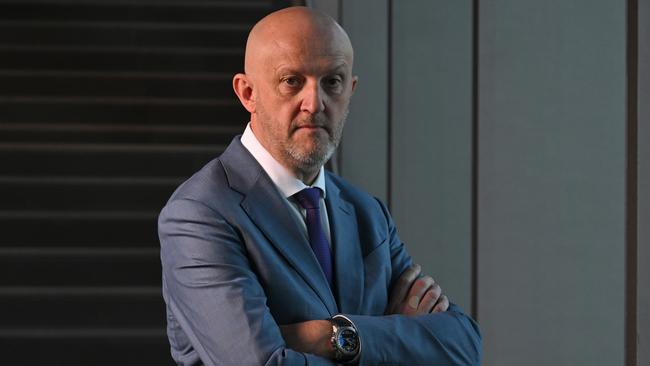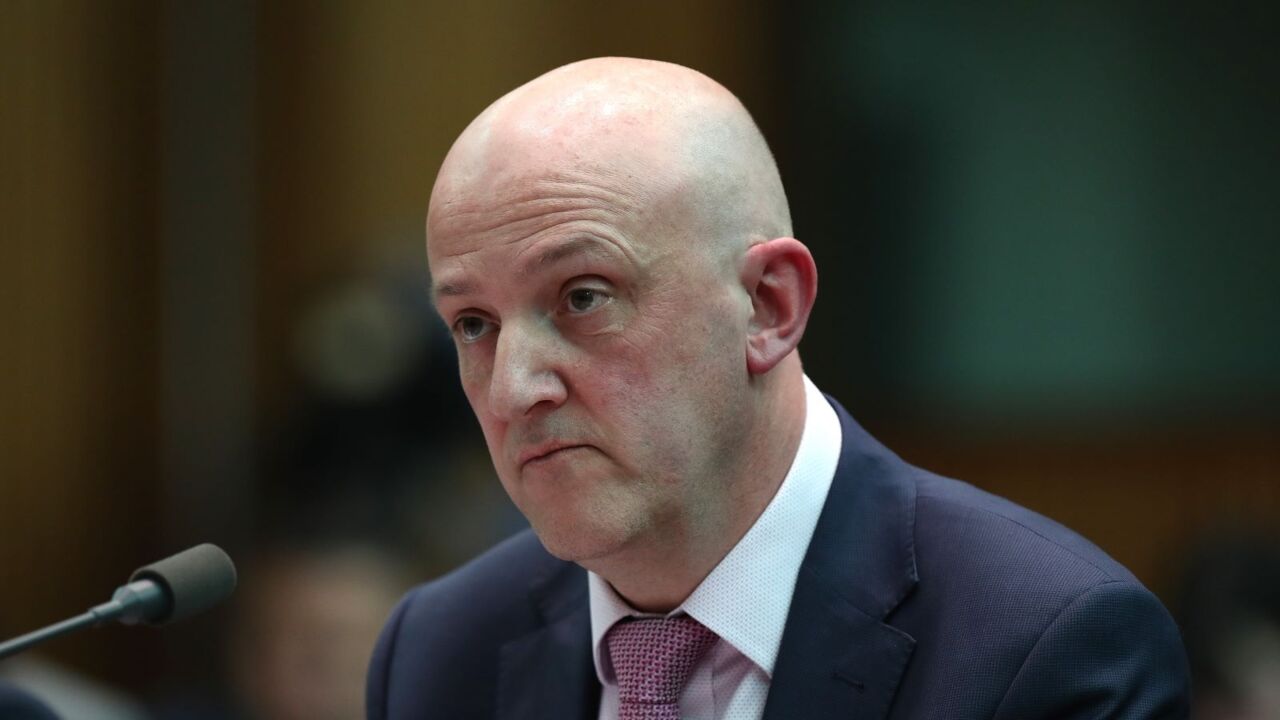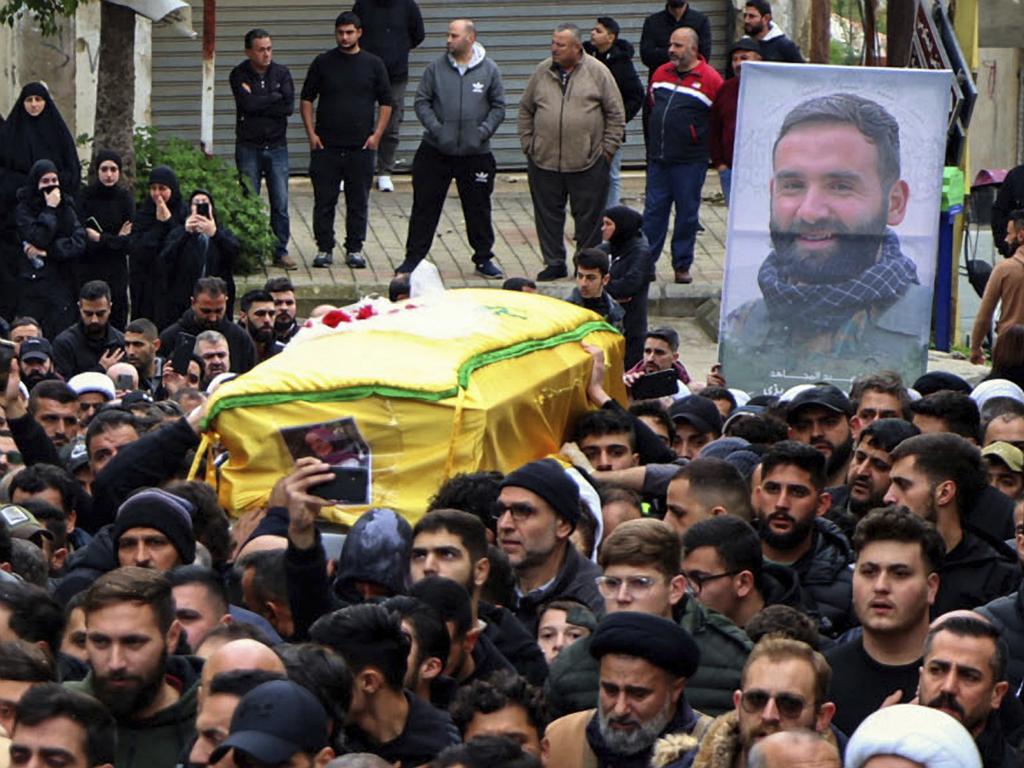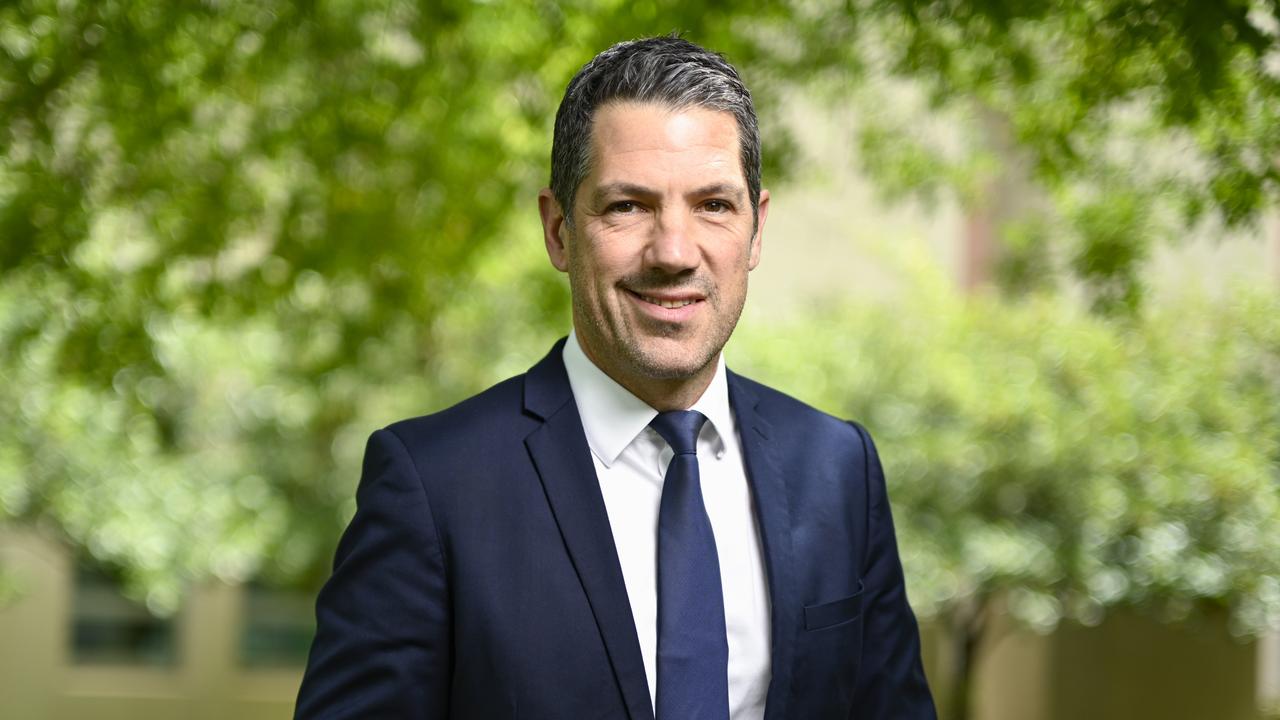ASIO chief Mike Burgess warns: Islamic terror our top threat
ASIO chief Mike Burgess reveals a foreign spy operation recruited a former politician who tried to link the spies with a PM’s relative.

Spy chief Mike Burgess has warned that Sunni Islamic violent extremism poses the “greatest religiously motivated threat in Australia” and revealed previously classified details of a foreign interference operation that recruited a former politician who tried to link the spies with a family member of a prime minister.
In his annual threat assessment in Canberra on Wednesday night, Mr Burgess acknowledged a “realistic possibility of a terrorist attack or attack planning in the next 12 months” and expressed concern about the rise of nationalist extremists including some seeking a race war.
Mr Burgess said the Australian Security Intelligence Organisation, which fears the potential of lone-wolf attacks, has also been on high alert since the Hamas-led massacre on October 7 last year in Israel and subsequent Iran-backed attacks in the Middle East.
“We have seen heightened community tensions that have translated into some incidents of violence connected to protest activity,” Mr Burgess said.
“We have also observed an increase in rhetoric encouraging violence in response to the conflict. Hateful rhetoric has targeted Israel and the Jewish community, as well as Muslim and Palestinian communities. Sunni violent extremism poses the greatest religiously motivated violent extremist threat in Australia.”
Mr Burgess said that while ASIO was not seeing Australians travel to join terrorists in the Middle East as it did with Islamic State, the agency remained concerned about the potential for an individual or small group under the radar of authorities to use readily available weapons to carry out an act of terrorism. “And this is a concern across the spectrum of motivations – religious and ideological,” he said.
Revealing details of a spy network dubbed “The A-Team”, the ASIO director-general said if the agency had a threat level for espionage and foreign interference it would be classified as “certain … the highest level on the scale”.
Mr Burgess said several years ago, the A-Team “successfully cultivated and recruited a former Australian politician (who) sold out their country, party and former colleagues to advance the interests of the foreign regime”.

“At one point, the former politician even proposed bringing a prime minister’s family member into the spies’ orbit,” Mr Burgess said. “Fortunately that plot did not go ahead but other schemes did. Another Australian, an aspiring politician, provided insights into the factional dynamics of his party, analysis of a recent election and the names of up-and-comers – presumably so the A-team could target them too. ASIO disrupted this scheme and confronted the Australians involved.”
While the ASIO boss didn’t identify the foreign intelligence organisation running the spy network, Chinese and Russian spies have been the most active in Australia targeting high-value assets across politics, business, public service and Defence.
“Right now there is a particular team in a particular foreign intelligence service with a particular focus on Australia – we are its priority target,” he said.
“The team is aggressive and experienced; its tradecraft is good – but not good enough. ASIO and our partners have been able to map out its activities and identify its members. We call them the A-Team – the Australia team,” he said. “The A-team members trawl professional networking sites looking for Australians with access to privileged information, and then use false, Anglicised personas to approach their targets.
“The spies pose as consultants, headhunters, local government officials, academics and think tank researchers, claiming to be from fictional companies such as Data 31.”
Replicating modus operandi of Chinese and Russian spies operating in western countries, the A-Team offers payments for “inside or exclusive information” and promises potential recruits “consulting opportunities, promising to pay thousands of dollars for reports on Australian trade, politics, economics, foreign policy, defence and security”.
Mr Burgess said while this might suggest the A-Team’s priority was classified material, “its appetites are wider than that”.
“We have seen it try to recruit students, academics, politicians, businesspeople, researchers, law-enforcement officials and public servants at all levels of government,” he said.
“While they usually contact their targets on professional networking sites, team members sometimes reach out through email, social media and messaging platforms. They’ve also used previously cultivated and recruited Australians to contact other Australians on their behalf. If a target takes the bait, the spies try to move the conversation onto an encrypted messaging app. A further step might involve the offer of an overseas trip to meet in person.”
Explaining why he declassified details of the A-Team, Mr Burgess said ASIO wanted to confront the spies before speaking about it “publicly as part of a real-world, real-time disruption … we want the A-team to know its cover is blown”.
The nation’s top spy said the terrorism threat level of “possible” did not mean “negligible”, with ASIO currently investigating multiple individuals who have discussed carrying out terrorism attacks in Australia.
Mr Burgess highlighted a disturbing trend of “ideologically motivated extremists switching between ideologies and merging components from different ones to create new, hybrid beliefs; a perverse – choose your own adventure – approach to radicalisation”.

Following the rise of disinformation and misinformation during the pandemic, he said that over the past 18 months ASIO had “seen an uptick in the number of nationalist and racist violent extremists advocating sabotage in private conversations, both here and overseas”.
“It’s particularly pronounced among accelerationists – extremists who want to trigger a so-called race war,” he said. “We have seen them endorsing attacks on power networks, electrical substations and railway networks.
“While it is largely big talk, ASIO remains concerned about a lone actor moving from talk to action without warning. The threat from nationalist and racist violent extremism persists.”
With China and Russia operating industrial-scale, state-sponsored hacking operations, Mr Burgess said ASIO was aware of “one nation state conducting multiple attempts to scan critical infrastructure in Australia and other countries, targeting water, transport and energy networks”.
Mr Burgess said the “cost of doing business continues to climb and our most aggressive adversaries are effectively unconstrained by budgets … a complex, challenging and changing security environment means a difficult, demanding and dynamic operating environment, particularly in a necessarily constrained fiscal environment”.
The former Australian Signals Directorate cyber spy agency head reiterated warnings that terrorists and spies were focused on sabotage. “ASIO is seeing both cohorts talking about sabotage, researching sabotage, sometimes conducting reconnaissance for sabotage – but, I stress, not planning to conduct sabotage at this time,” he said.
“The most immediate, low-cost and potentially high-impact vector for sabotage is cyber. Our critical infrastructure networks are interconnected and interdependent, which increases the vulnerabilities and potential access points.”
In response to the AUKUS nuclear submarine pact, Mr Burgess said ASIO had embedded officers in the nuclear submarine taskforce. “Ideally, good security starts before production does,” he said. “The subs might be years away but the threat is not. Security is being built into every step of the supply chain.”
Mr Burgess said the ASIO-Australian Federal Police foreign interference taskforce last year “uncovered and disrupted an individual working on behalf of a foreign government who wanted to physically harm an Australia-based critic of the regime”.
“The individual tried to identify his target’s home address and bank details, hired a subcontractor to take photos of the house and even asked how much money would be required to get the subcontractor to quote ‘take severe action’ against the dissident,” he said. “Even more recently, a foreign intelligence service tried to find an Australian who would be willing to make a different dissident quote ‘disappear’.”






